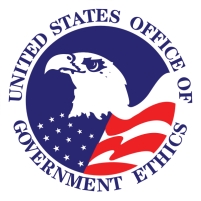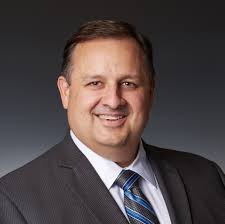
Ethics office says a blind trust run by Trump kids wouldn’t comply with law
The Office of Government Ethics responded to a letter from Sen. Tom Carper (D-Del.) asking about President-elect Donald Trump’s strategy to avoid a conflict of...
President-elect Donald Trump’s plans to place his financial assets in a trust controlled by his children may violate federal ethics rules.
The Office of Government Ethics responded to questions from Sen. Tom Carper (D-Del.), ranking member of the Homeland Security and Governmental Affairs Committee, Dec. 13 saying that in its opinion “transferring operational control of a company to one’s children would not constitute the establishment of a qualified blind trust, nor would it eliminate conflicts of interest under 18 U.S.C. § 208 if applicable.”
OGE was not judging Trump’s plans, but just offering its interpretation of the law.
“OGE does not have any independent knowledge of facts that would either support or refute the premise of this question” about whether Trump’s reported decision to transfer control of the Trump Organization to his three oldest children would meet the standards of a qualified blind trust, as defined under the Ethics in Government Act.
Carper sent a letter to OGE on Nov. 21 asking 18 questions about the application of the Ethics in Government Act.
“Clearly, transferring control of the Trump organization to his sons Donald Jr. and Eric, as the President-elect announced his intention to do yesterday, does not solve the numerous conflicts facing the President-elect and his incoming administration,” Carper said in a statement following OGE’s response. “President-elect Trump has a sworn duty to ensure the American people that, in every decision he makes as President of the United States, he has no other interests than those of our country, and I urge him to heed OGE’s advice in order to do so.”
Trump is expected to outline how he will resolve the potential conflicts of interests before the inauguration in January.
OGE says the President-elect’s first public disclosure report will be due on or before May 15, 2018, detailing eight data points, including liabilities, transactions, positions held outside the federal government, assets, income and retirement accounts and spouse’s employment, assets, income and retirement accounts.
OGE says traditionally presidents file their annual disclosure by May 15 during their first year in office, but it’s unclear whether Trump would do that.
“Because the STOCK Act requires that his annual public financial disclosure report be posted online, it will be posted on either OGE’s website or the White House’s website,” OGE wrote to Carper.
OGE also pointed out to Carper that the law detailing the criminal conflict of interest statute that “prohibits an executive branch employee from participating personally and substantially in a particular government matter that will affect his own financial interests, as well as the financial interests of his spouse or minor child; his general partner; an organization in which he serves as an officer, director, trustee, general partner or employee; and a person with whom he is negotiating for or has an arrangement concerning prospective employment” doesn’t apply to the President as of 1989.
“Nevertheless, it has been the consistent policy of the executive branch that a President should conduct himself as if he were bound by this financial conflict of interest law. Given the unique circumstances of the Presidency, OGE’s view is that a President should comply with this law by divesting conflicting assets, establishing a qualified blind trust, or both. However, although every President in modern times has adopted OGE’s recommended approach, OGE has no power to require adherence to this tradition,” OGE wrote.
OGE has conducted training courses for more than 7,000 people in 2016 and developed new guidance and education materials for new political appointees.
OGE Director Walter Schaub told the Federal Drive with Tom Temin in September that the office advises appointees to sell off certain assets or step down from board positions in order to avoid a conflict of interest.
“This can be a bitter pill to swallow, and in fact, coming into the federal government to engage in public service at a high level really is a significant sacrifice,” Schaub said.
OGE told Carper that it has offered to develop recommendations for Trump, but the President-elect has not taken them up on the offer.
Copyright © 2025 Federal News Network. All rights reserved. This website is not intended for users located within the European Economic Area.
Jason Miller is executive editor of Federal News Network and directs news coverage on the people, policy and programs of the federal government.
Follow @jmillerWFED






